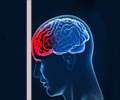Athletes who have medical complaints, like aches and pains, that have no known physical cause may take longer to recover after a concussion.

‘After concussion, athletes who had reported pre-injury psychosomatic symptoms had longer recovery times, recovering at a slower rate than those who had no psychosomatic symptoms.’





For the study, 2,055 high school and college athletes were evaluated before the start of the season for balance, thinking and memory skills and psychological problems such as depression, anxiety and psychosomatic problems such as feeling faint or dizzy, nausea or upset stomach or pains in chest or heart. For the psychosomatic problems, the athletes rated how often they had been bothered by these symptoms during the last week. About 50% of the participants had at least one of six symptoms, and the other 50% had no symptoms. During the season, 127 athletes suffered a concussion. Those athletes were then reassessed within the first 24 hours of injury and then again at eight, 15 and 45 days after the injury. Of the concussed athletes, 61% played football, 24% played soccer, 6% played lacrosse, 3% were wrestlers, 3% played hockey, 2% played rugby and 1% played field hockey. Of the group, 80% was male.
On average, concussion symptoms lasted five days, with 64% of concussed athletes saying their symptoms were gone after one week and the vast majority, 95%, saying they no longer had symptoms after one month.
After concussion, those athletes who had reported pre-injury psychosomatic symptoms had longer recovery times, recovering at a slower rate than those who had no psychosomatic symptoms. For people with symptoms, about 80% had recovered within about 20 days of the concussion. For those with no symptoms, about 80% had recovered within about 10 days.
Those who had more severe physical symptoms after their concussions, like headache and balance issues, recovered at a slower rate than those with less severe symptoms.
Advertisement
Source-Newswise










